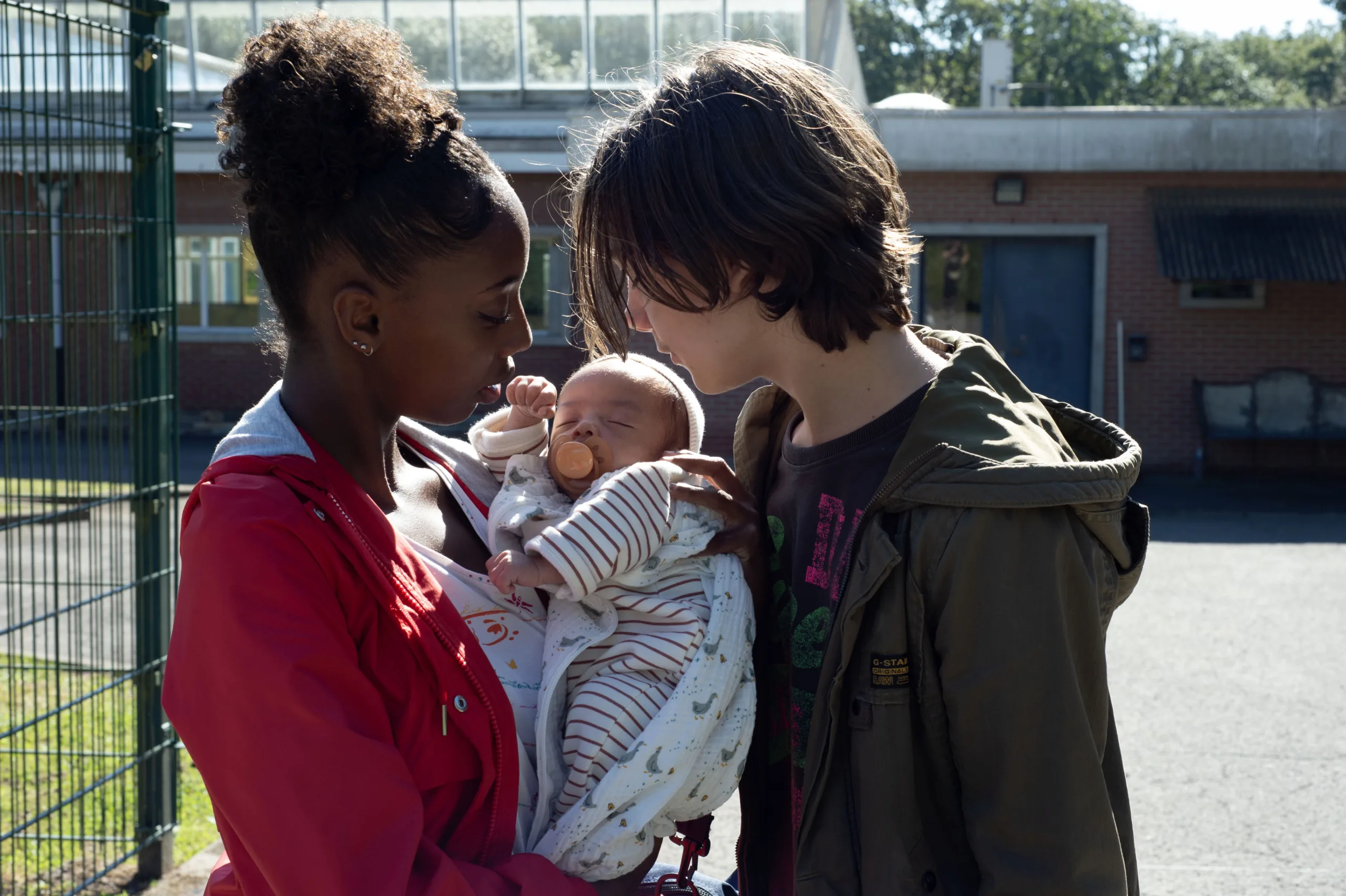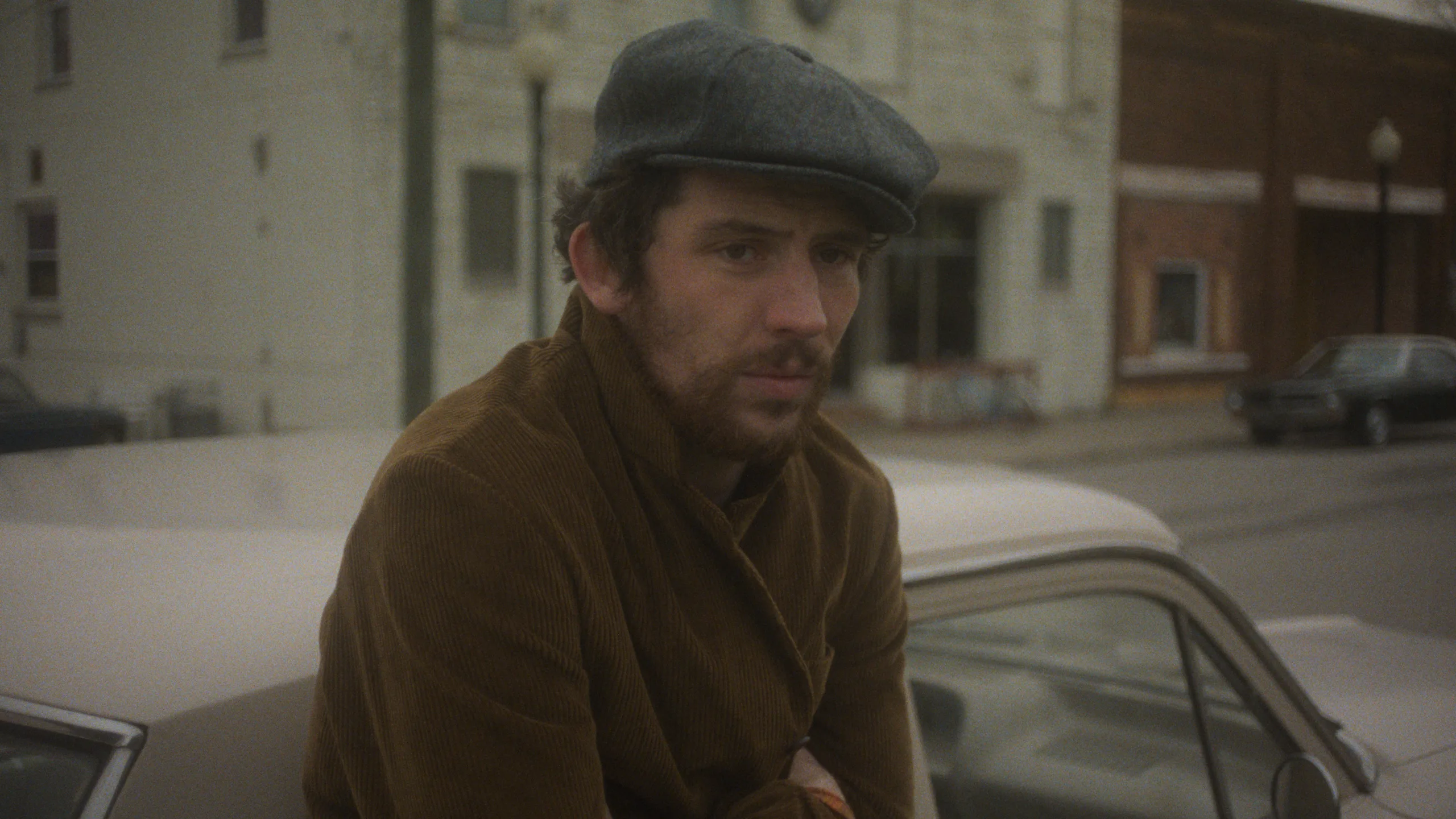The title of Kelly Reichardt’s “The Mastermind,” the last film to premiere in competition at Cannes this year, only gets funnier the more you think about it. Josh O’Connor stars as J.B., a judge’s son and former art student who hatches a plan to rob a handful of paintings from a museum in Framingham, Massachusetts. “I’ve given it a lot of thought,” he assures his accomplices about the scheme, but as the caper spirals out of control—more like whimpers out, really—multiple people remind him that he has not. J.B. seems temperamentally incapable of even perceiving his mistakes.
From a summary, “The Mastermind” might sound like an uncharacteristically larky effort from Reichardt, who was last at Cannes with the lovely, slept-on “Showing Up” in 2022. But she approaches the proceedings with counterintuitive restraint. The robbery sequence isn’t designed to get your pulse racing, nor is the comedy—as when J.B.’s pantyhose-masked collaborators Guy (Eli Gelb) and Ronnie (Javion Allen) are mistaken for cleaners by a museumgoer—played broadly. There’s a dark, slow grind of inevitability to watching everything go wrong.
Not a single decision J.B. makes, from his selection of partners to his choice of the date for the robbery (his kids don’t have school that day, meaning that he has to figure out where to park them while he goes to the museum), is correct. In “Showing Up,” Reichardt spent time letting viewers observe the lonely, at times tedious process of making art. In “The Mastermind,” she also has an eye toward labor, devoting a protracted, dimly lit scene to J.B.’s inept efforts to hide the paintings in a barn loft.
Because “The Mastermind” is expressly set during the Vietnam War—we hear and see broadcasts on the periphery, and protests intermittently figure into the plot—it’s tempting, but surely reductive, to read J.B.’s blundering as a national allegory. No matter how badly he screws up—and no matter how little he ultimately gets out of the crime—he persists in thinking of himself as a mastermind. And he may be on the lam, but he’s small-fry: At the time, you were more likely to flee to Canada to dodge the draft, not because you stole from a mid-level museum.
Some intriguingly specific sources cited in the credits—video documentaries on anti-war protests at Columbia and on veterans with P.T.S.D.—suggest that capturing the political foment of the time was an important part of Reichardt’s thinking. The stunning ending makes that connection explicit. “The Mastermind” may be a heist movie about a novice thief with a dumb plan. But Reichardt pulls it off like clockwork: This film is stupendously smart.

Few filmmakers are more reliable presences at Cannes—both for the quality of their work and the fact that they always premiere their movies here—than the Belgian brothers Jean-Pierre and Luc Dardenne, who are also in the small club of directors who have won the Palme d’Or twice.
In terms of subject matter, “Young Mothers” is superficially consistent with their themes. “L’Enfant,” which won the Palme in 2005, also centered on a character ill-prepared for parenthood. But stylistically, the new film, much of which is set at a shelter for teenage mothers, represents a subtle departure for them. There are certain scenes, particularly those dealing with the maternal care center—whose employees teach the young mothers how to care for their children—that play like segments out of a Frederick Wiseman documentary. The performances are so persuasive and natural, and the Dardennes’ camera so unobtrusive, it’s as if the brothers have conjured reality from whole cloth.
The title refers not just to the current young mothers but, in multiple cases, to the girls’ own parents, who weren’t prepared to raise them. The pregnant Jessica (Babette Verbeek) tries to forge more of a relationship with her birth mother (played by India Hair), demanding to know why she gave her up. Jessica insists that she would never “dump” the daughter she’s about to bear. But after she gives birth, the difficulties of parenting raise doubts for her.
Ariane (Janaina Halloy Fokan) has made the decision that her daughter, Lili, must go to a foster home, but her mother, Nathalie (Christelle Cornil), becomes agitated at the prospect, insisting that she’ll give up her boyfriend and drinking. “Why are you so cold with me?” Nathalie asks, in a line that suggests the sort of needy manipulation that Ariane herself has had to grow up with. Ariane is only 15 now, but she has spent her life forced to be the adult in the room.
Julie (Elsa Houben) herself deals with substance abuse issues. And Perla (Lucie Laruelle) has a degree of denial about how secure and permanent her situation is. When her boyfriend (Gunter Duret), the baby’s father, breaks things off with her, she impulsively offers to put their boy in foster care, as if that were nothing at all. Perla also has a fraught relationship with her older sister (Joely Mbundu), who saw a more-together version of their mother.
The film makes clear that, as helpful as the home can be, its role is limited. Its goal is to help young women grow into their roles as parents, not to become a de facto daycare center. And these cycles will continue. One of the most moving scenes, late in the film, involves Ariane writing a letter for baby Lili to read when she turns 18—“three years older than me today.”
Where “Young Mothers” differs from many of Wiseman’s institutional portraits (other than the fact that it’s fiction, however well-researched) is in the tenderness of its perspective. Unlike some of the brothers’ other (excellent) films—“La Promesse,” “The Son”—it doesn’t frame itself as a moral question for the viewer to ponder. These girls have had tough lives that have led them to wrenching decisions. The Dardennes are devoted, above all, to simply seeing these young mothers as they are.












